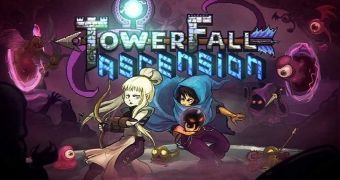Towerfall used to be an Ouya exclusive, until landing on the PC and PlayStation 4 platforms in an enhanced version, dubbed Towerfall: Ascension.
The game has seen quite the success on Sony's next-generation console, and Ouya CEO Julie Uhrman commented on the title's ascending trajectory, stating that its success validates the microconsole's approach.
"21 percent of Towerfall's total revenue comes from Ouya, which is pretty impressive when you consider the legacy and size of the Steam and Playstation communities," Uhrman said in a statement.
"Plus, OUYA helped put Towerfall and Matt on the map. His story signals that Ouya works: we are finding the next great developers and making them household names, while rewarding their great games with real money in their pocket," she went on to say.
Towerfall and its new and improved big brother, Towerfall: Ascension, have managed to earn $500k / €360k in sales, the majority of which coming from the PlayStation 4 version of the two-dimensional multiplayer arena game.
Although the number is far from being impressive as far as the gaming business as a whole is concerned, it's still a lot of money for the minuscule development team behind the game.
"Being the best game on Ouya isn't a huge deal, but it is nice. It still sells on there," developer Matt Thorson commented on having sold 7k copies of Towerfall on the Ouya, crediting the communal nature of the local multiplayer aspect of the archery game for its success on the PlayStation 4.
"I think a lot of people still sit down with their friends when they play their consoles, whereas they don't do that on PC. Even if it's a single-player game. I know me and my friends will sit down and one of us will be playing a game while everyone else is just hanging out," Thorson pointed out.
The microconsole started its life as a crowdfunded Android-based console that insisted that all its games have a free-to-play version or component. Although the "something free" model seemed interesting in theory, the reports showed that the Ouya wasn't exactly good at getting the customers' money in the developers' pockets.
Ouya is shaping up as a stepping stone for small developers to get their foot in the door of indie gaming, and the microconsole is apparently not afraid to try exploring new directions in order to cement its position in the console gaming landscape.
It has had mixed success, but now the company is entertaining new concepts for future expansion, renouncing its mandatory free-to-play mantra and even planning to deliver its software package on other, non-proprietary hardware platforms.

 14 DAY TRIAL //
14 DAY TRIAL //